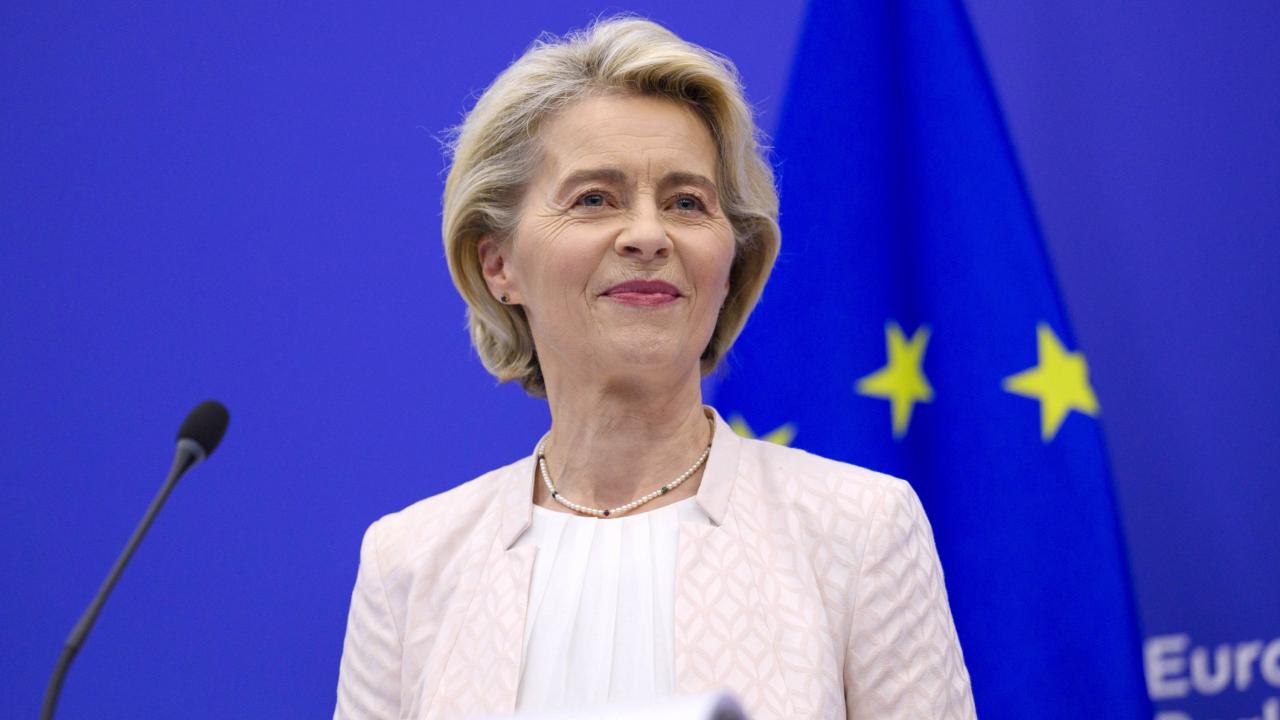
Brussels still needs to clarify the legal basis and ratification process required for it to be adopted by the EU.
The President of the European Commission, Ursula von der Leyen, has closed this Friday in Montevideo the trade agreement with the Mercosur countries that the European Union has been negotiating with this region for 25 years and which is still strongly opposed by France; whose president, Emmanuel Macron, warned the day before that the pact in its current state "is unacceptable" but failed to stop Brussels.
"It is not only an economic opportunity, it is also a political necessity," stressed the head of the Community Executive, in an appearance without questions alongside the rotating president of Mercosur and president of Uruguay, Luis Lacalle Pou, to announce the agreement that the Mercosur foreign ministers had already announced the day before with the commissioner for trade, Maros Sefcovic.
"We are breaking down barriers and allowing investment to come in, creating a market of more than 700 million consumers," said Von der Leyen, who hailed the "true historic milestone" of an agreement between the two regions.
According to Brussels' estimates, the new framework will save European companies around 4 billion euros (US$ 4.218 billion) in tariffs each year.
Lacalle Pou, for his part, has stressed the importance of leaving behind a relationship that "did not generate trust" due to the series of disagreements and frustrated agreements in the last two decades; while he has argued that it is much more than a trade agreement.
"In a world where knowledge doubles every three years, it is illogical that countries cannot understand each other in such a time frame," the Uruguayan president reasoned, after joking that he will return home "more relaxed" today and assuring that the Mercosur leaders agree, "with different concepts," on the "significance of the day."
While the rest of the Mercosur leaders have yet to make a public statement, the Uruguayan has announced that Santiago Peña (Paraguay) said at the meeting that "he was not satisfied, but he was enthusiastic", while Luis Inácio Lula da Silva (Brazil) considered it a "historic day" and Javier Milei (Argentina) pointed out the "transcendence and importance" of the agreement.
The trade agreement involves the gradual elimination of 91% of tariffs applied to European quotas entering Mercosur, for example on agricultural and food products of interest to Spain such as olive oil, wine, fruit and vegetables and pork.
In return, the EU will also liberalise most of its market access, although tariff quotas will remain in place for particularly sensitive products.
LONG PROCESS FOR ITS RATIFICATION
Shortly before the agreement was confirmed after more than two decades of negotiations, the Community spokesman on trade issues, Olof Gill, warned in a press conference from Brussels that the agreement could not be considered signed, because what happened in Montevideo, on the sidelines of the Mercosur summit, is a political agreement on the texts negotiated at a technical level.
"The political agreement is only the first step in a long process, it is only the beginning," he said, referring to the fact that a long process is now beginning, which will start with the legal examination of the texts by the legal services of the Community Executive and their translation into all the official languages of the EU. Only then will Brussels announce the legal basis it will propose for ratification both in the Council and in the European Parliament.
This is an agreement between negotiators that still needs, on the European side, to go through a ratification process that will take time and will probably involve Brussels 'cutting up' the Treaty.
In this way, the trade part can be adopted by a qualified majority of the Twenty-Seven, thus avoiding France being able to veto it if it does not gain enough support to form a blocking minority.
It will also need to be ratified by the European Parliament, but will bypass ratification in all 27 national parliaments if the trade framework is confirmed to be separate.
The EU and Mercosur had already reached an agreement in principle like this in 2019, but during the ratification process it came up against reservations from countries such as France and Ireland, which called for tougher environmental safeguards and mirror clauses to avoid putting European farmers at a disadvantage.
These are the demands that the parties have negotiated in an attached declaration that will complete the Treaty they negotiated at that time and which includes, according to community sources, a clause that will allow the agreement to be partially or totally suspended if one of the parties moves away from the commitments of the Paris climate agreement.
For the moment, only France has been categorical in its rejection of the new agreement despite the additional provisions negotiated, although Poland, Ireland, the Netherlands and Austria have also expressed reservations if accompanying measures are not sought to compensate for the impact on their own strategic sectors.
However, at the last meeting of EU trade ministers held last week, various European sources consulted by Europa Press indicate that, with calculator in hand, France does not yet have enough support to have a blocking minority, although it could achieve this if it convinces Italy, which is still hesitant.









